Category: Engage and Enable Blog
-

UW DO-IT Scholars visit the CNT
Over 40 high school and college students with disabilities recently visited the Center for Neurotechnology (CNT) from the Disabilities, Opportunities, Internetworking and Technology (DO-IT) Center at the University of Washington (UW). The students were part of the DO-IT Scholars Summer Study program at the UW, and their visit to the CNT happened to coincide with DO-IT’s 25th Anniversary…
-

Inviting neural engineers to proactively consider the ethical implications of their work
Although most people are somewhat familiar with the concept of ethics, which describes fundamental principles of decent human conduct, the idea of ethics as applied to neural engineering, or “neuroethics,” might be less familiar. As neural engineering technology becomes increasingly prolific, it is imperative that future engineers, researchers and ethicists recognize how these devices can…
-

Engineering data security for brain-computer interfaces
A new type of wireless transceiver is on its way to making data transmitted by brain-computer interfaces more secure. Chip layouts of the secure CSR-UWB transmitter and receiver in a 32nm CMOS (Complementary Metal Oxide Semiconductor) technology. Online data security has been a public concern for some time now. Whether it’s hacking of business or government…
-
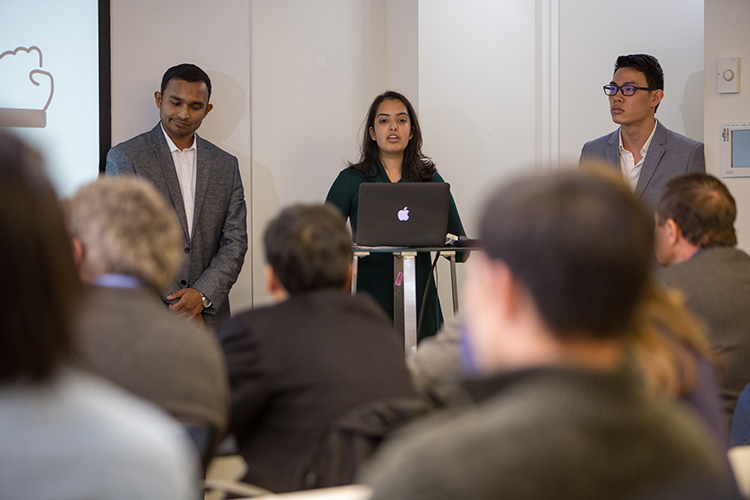
Turning student neural engineering projects into viable industry products
Aleenah Ansari Aishwarya Mandyam, a current sophomore at the University of Washington (UW) studying at the Paul G. Allen School of Computer Science & Engineering (CSE), has explored outlets to translate concepts from computer science academia to industry through past internships at Expedia and Microsoft. In her internship roles, Mandyam worked on projects that allowed her to solve real-world problems and apply…
-

RET participants design and pilot neural engineering and neuroethics curriculum
Middle and high school teachers, Hannah Earhart, Phelana Pang, and Alexandra Pike, all took part in the Center for Neurotechnology (CNT) Research Experience for Teachers (RET) program this summer at the University of Washington (UW). As part of the program, they designed innovative curriculum units covering neural engineering and neuroethics topics. They will be piloting these…
-

The CNT Practitioner and End-User Roundtable
Imagine being asked to solve a problem for someone who you’ve never met. You have the necessary skills, you’ve been given a detailed overview of the issues at-hand, and you understand what’s at stake; however, you never have actually met anybody with the problem you’re trying to solve. Given enough time and information, you might…
-
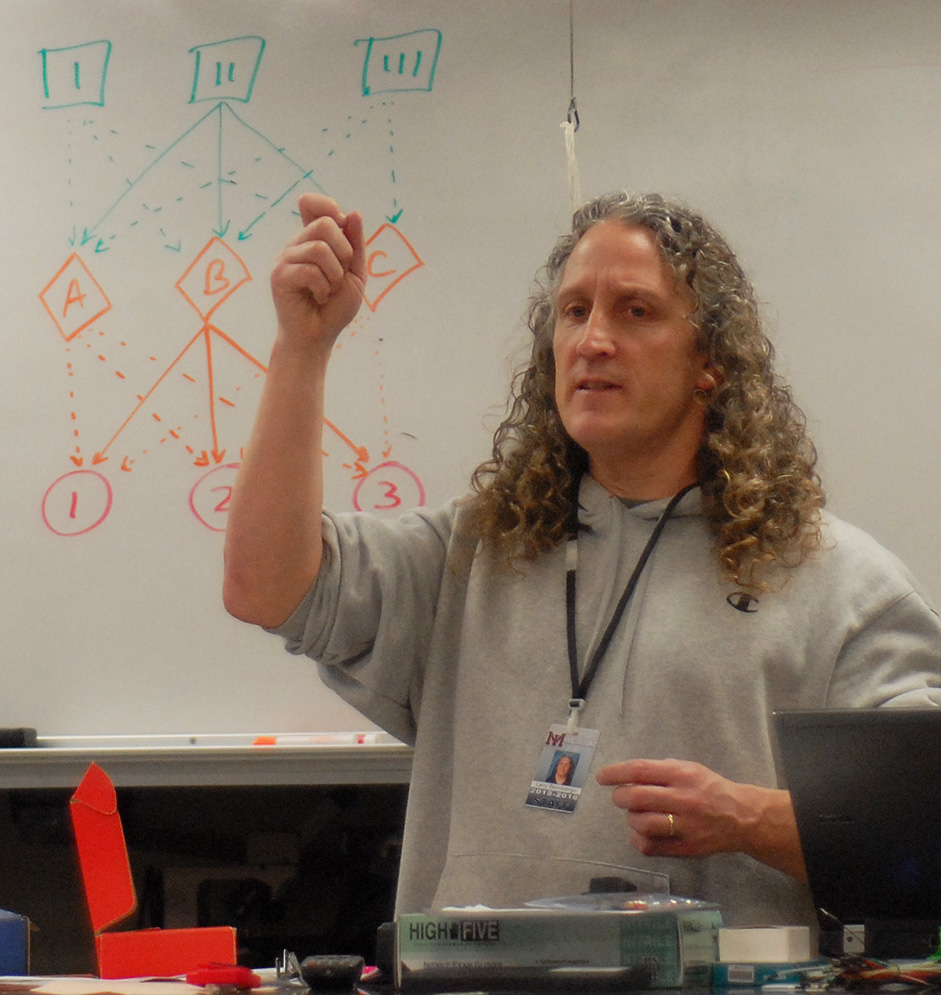
In RET program, teachers turn summers into science
Eleanor Cummins For middle and high school teachers, summers are a time to recharge after a long school year. It can be a rare chance to travel or spend quality time with friends and family. But for the past four years, a small group of Seattle-area educators have elected to spend their summers on the…
-
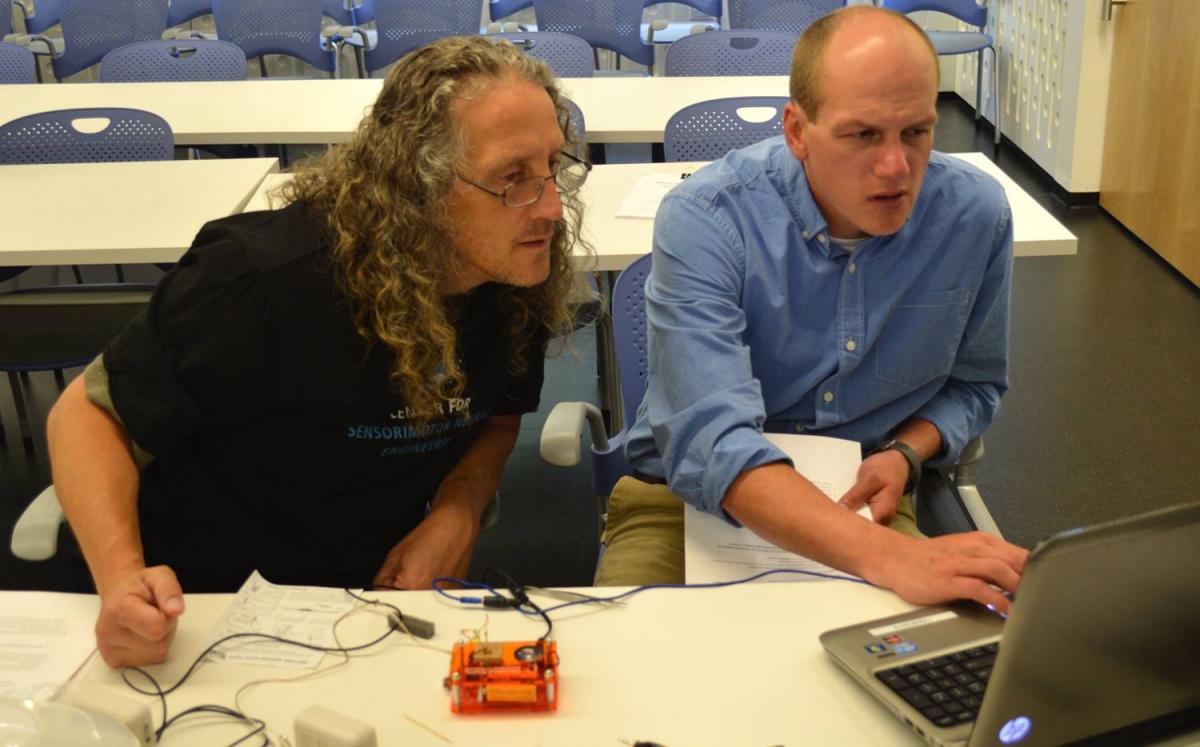
Teachers head back to the lab for summer
Mary Guiden A career in education can be challenging, but it also has its perks. For middle and high school teachers, one benefit is having summers free for vacation and leisure time. Paul Zimmer, who teaches chemistry at South Kitsap High School, opted for something else this year. He joined five other educators in a Research…
-
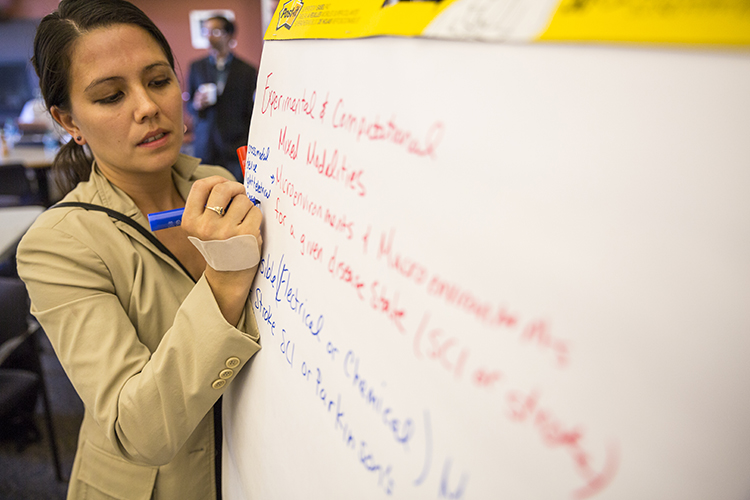
Using mathematics to help heal the brain
Wayne Gillam Empowering the brain’s ability to change and adapt Center for Neurotechnology (CNT) researchers at the University of Washington (UW) recently released a publication in PLoS Computational Biology, which describes a new mathematical model useful for engineering bi-directional brain-computer interfaces (BBCIs) that can target and induce brain plasticity (the brain’s ability to change and adapt…
-
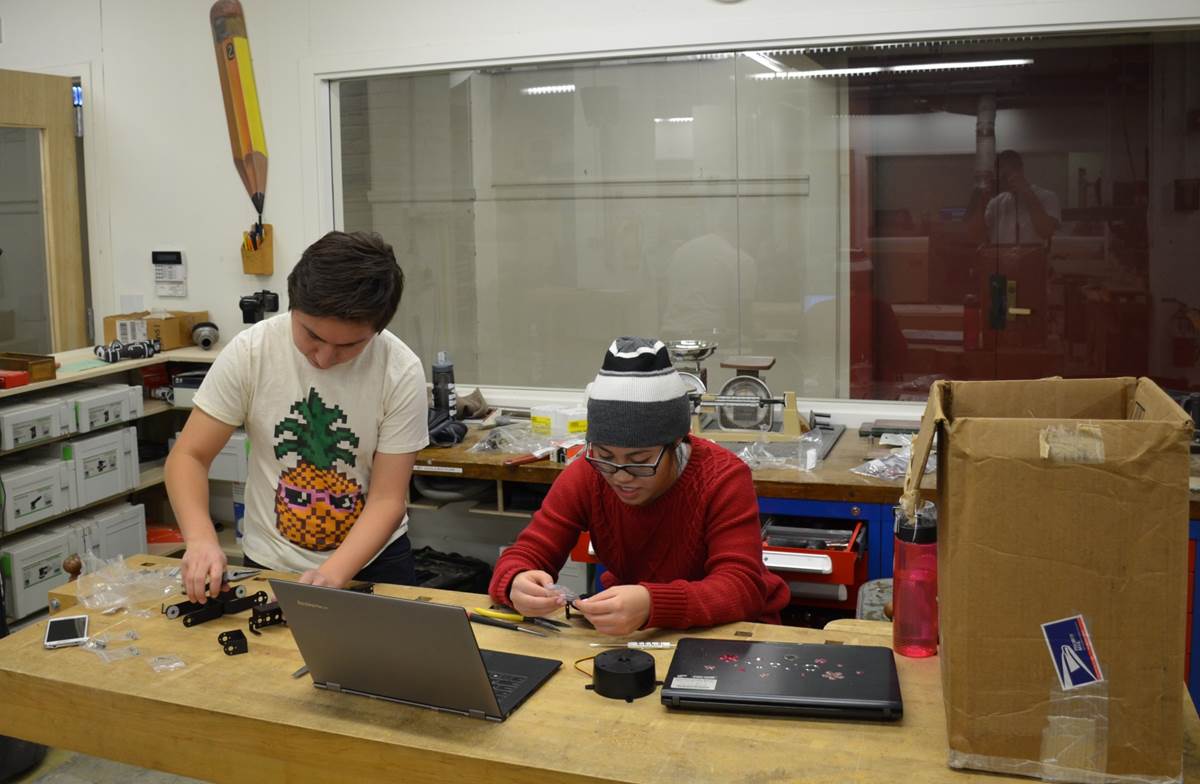
Two feet of snow can’t stop MIT Momentum
“Neither snow nor rain nor heat nor gloom of night stays these couriers from the swift completion of their appointed rounds.” This creed from the United States Postal Service is fitting for the students who recently participated in MIT Momentum, a design class for first and second year students sponsored by the Office of Minority…
